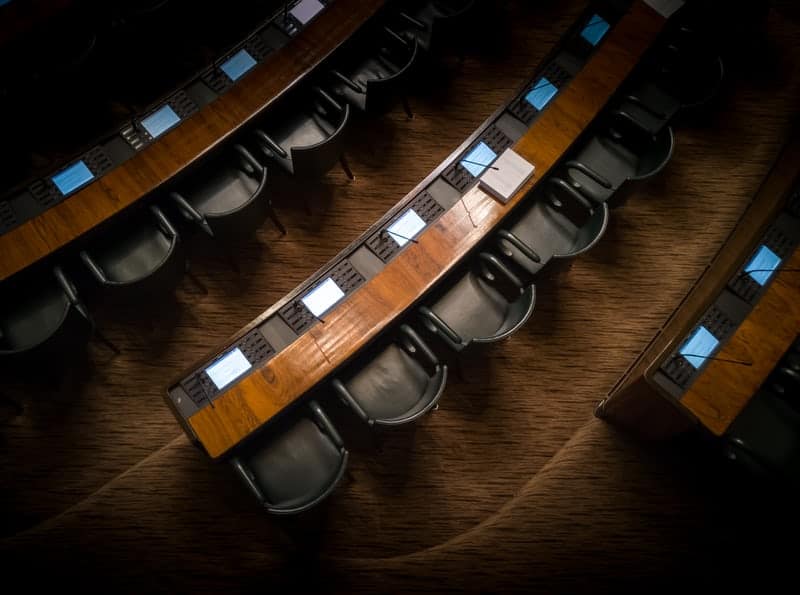
Rund Khayyat is a student at Harvard Law School.
The $600 CARES Act unemployment benefit ends today, leaving millions of Americans in jeopardy. Though Senate Republicans and the White House have insisted that the $600 benefit discourages Americans from working, a new study by Yale economists tells a different story. The study discovered that the expanded jobless benefits, which Congress implemented in March, did not reduce employment. To the contrary, the benefits “neither encouraged layoffs during the pandemic’s onset nor deterred people from returning to work once businesses began reopening.”
In fact, workers receiving larger expansions in unemployment insurance benefits returned to their jobs at similar rates as others. There is also no evidence that more generous benefits disincentivized work at either their implementation, or later, when businesses began to reopen. Instead, other factors have prevented Americans from returning to work — such as a lack of child care, the risk of infection, and the stalling labor market. A June study by the Federal Reserve Bank of Chicago reached similar findings: “Those currently collecting benefits search more than twice as intensely as those who have exhausted their benefits,” the study said. The Yale researchers published their findings as Congressional negotiations over the appropriate level of relief to provide struggling workers have reached an impasse.
The White House is willing to accept a congressional stimulus package that doesn’t shield employers from coronavirus-related legal claims. The flexible position, which two anonymous White House staffers revealed to the Washington Post this week, directly contradicts Senate Majority Leader Mitch McConnell’s weeks-long insistence that any congressional package make it significantly harder for workers and customers to sue employers for coronavirus-related harm. Disagreements over the provision, which Congressional Democrats reject because it would allow employers to endanger vulnerable workers with impunity, has been a major obstacle in the stalled negotiations.
In the wake of widespread protests over racist policing, many of which NBA players famously joined, the NBA and its Players Association (NBPA) have agreed on social justice messages that players could wear on their jerseys in lieu of their last names. When the League returns to the courts on July 30, the players can display the messages during the first four days of the season, after which they can return to only displaying their last names or wear both the social justice messages and their last names on their jerseys.
The Union agreed to 29 messages, including: “Black Lives Matter”; “I Can’t Breathe”; “Justice”; “Peace”; “Equality”; “Say Her Name”; “Anti-Racist”; “Group Economics” and “I Am a Man” — the slogan that the 1968 Memphis sanitation workers’ strike famously used. The slogans agreement follows the NBA and NBPA’s June 24 announcement that they would continue discussing racial justice and prioritize the issue during the season restart.






Daily News & Commentary
Start your day with our roundup of the latest labor developments. See all
February 27
The Ninth Circuit allows Trump to dismantle certain government unions based on national security concerns; and the DOL set to focus enforcement on firms with “outsized market power.”
February 26
Workplace AI regulations proposed in Michigan; en banc D.C. Circuit hears oral argument in CFPB case; white police officers sue Philadelphia over DEI policy.
February 25
OSHA workplace inspections significantly drop in 2025; the Court denies a petition for certiorari to review a Minnesota law banning mandatory anti-union meetings at work; and the Court declines two petitions to determine whether Air Force service members should receive backpay as a result of religious challenges to the now-revoked COVID-19 vaccine mandate.
February 24
In today’s news and commentary, the NLRB uses the Obama-era Browning-Ferris standard, a fired National Park ranger sues the Department of Interior and the National Park Service, the NLRB closes out Amazon’s labor dispute on Staten Island, and OIRA signals changes to the Biden-era independent contractor rule. The NLRB ruled that Browning-Ferris Industries jointly employed […]
February 23
In today’s news and commentary, the Trump administration proposes a rule limiting employment authorization for asylum seekers and Matt Bruenig introduces a new LLM tool analyzing employer rules under Stericycle. Law360 reports that the Trump administration proposed a rule on Friday that would change the employment authorization process for asylum seekers. Under the proposed rule, […]
February 22
A petition for certiorari in Bivens v. Zep, New York nurses end their historic six-week-strike, and Professor Block argues for just cause protections in New York City.